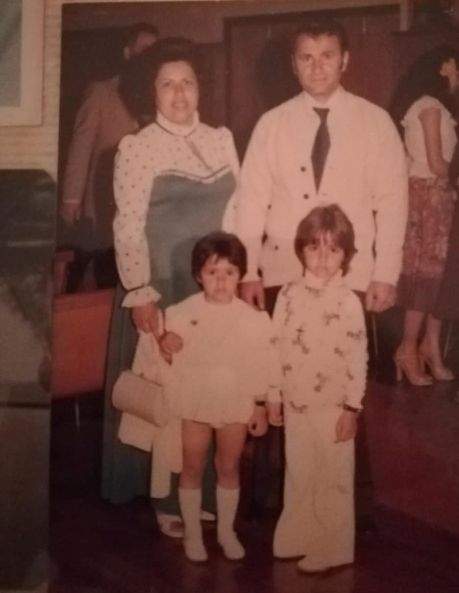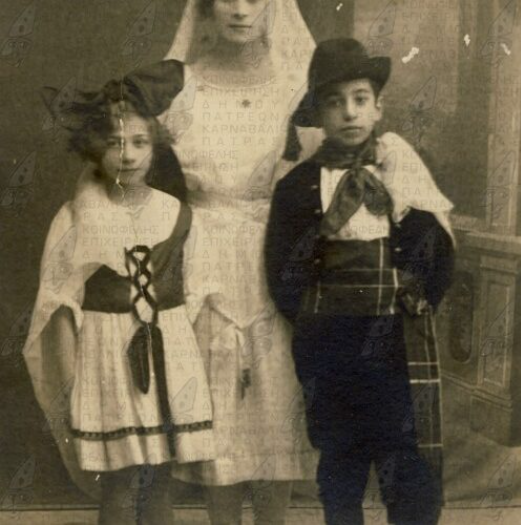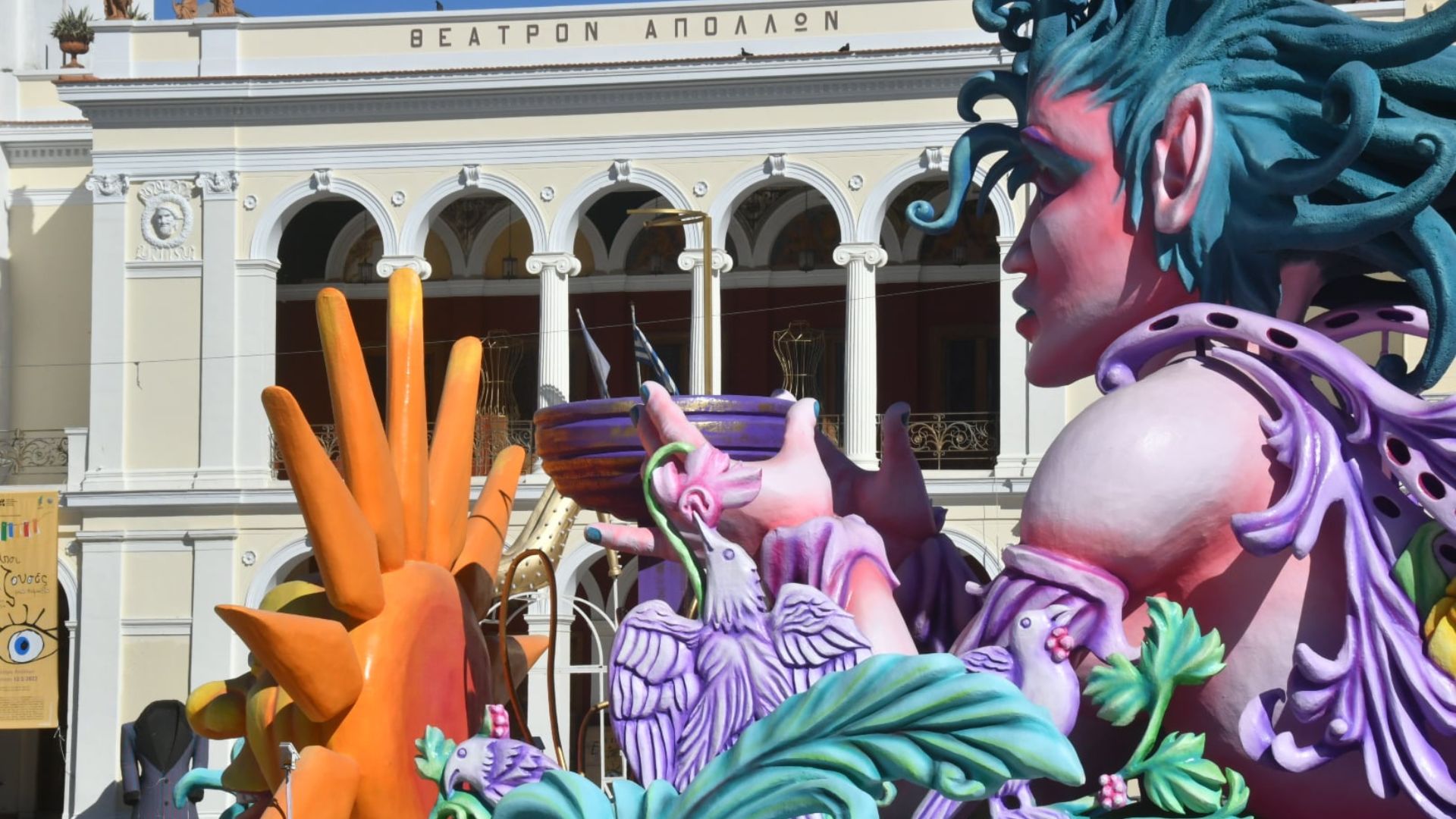By Kathy Karageorgiou
It’s Patras Carnival time! The biggest carnival in Greece, the Patrino Carnavale (or the more generic ‘Apokries,’ as it’s known in Greece), rivals the most well-known carnivals in the world, such Rio de Janeiro’s Carnival, the Venetian Carnival, New Orlean’s Mardi Gras, and of course our biggest Aussie carnivals – Sydney’s Mardi Gras and Melbourne’s Moomba.
Like many centuries and even millennia old, large, social festivities, the Carnival of Patras stems from pagan celebrations, such as those of our ancient Dionysus. Back then, these get-togethers included a farewell to Winter (in the Northern Hemisphere), in lieu of the rejuvenating Spring.
Since then, Christianity and later societal governing institutions have somewhat tamed these ancient rites, incorporating them into our modern carnival form. Some forms of pagan and folk culture continue to persevere though, such as mask wearing and satirical floats.

Carnival or carnavale/carnavali stems from the Latin – carne levare – meaning to abstain from meat (Apokries has the same meaning). This etymology reveals Carnival’s spirit – a final, wild revelry including feasting before meat eating ends. In Christian Orthodox terms, Carnivale heralds the strict pre-Easter fasting period where body, as well as the soul, pay homage to Jesus Christ in his 40 days of suffering in the desert, before Crucifixion and his ascent to Heaven.
The Patrino Carnavale’s festivities thus begin in the approximate three to sometimes four-week period before the Orthodox religious fasting period of Sarakosti – the 40-day Lent period, preceding Easter.

This year the Patras Carnival season began on January 16 (always on St Anthony’s name day) and ends on Sunday, March 17, the day before Clean Monday, March 18 – from whereon fasting begins. Hence, in the timeline of Greek Orthodox custom and tradition, Carnivale comes first, followed by fasting, and then Easter.
Speaking to a Greek Australian from Patras, Tina Crisas, who has been involved in Patra Carnivals for over three decades, tells me: “Leading up to the big parade, I especially admire most of the customs still being honoured till this day. They are what make the Patrino Carnivale what it is and are part of its fabric.”


Notwithstanding customs, the Patras Carnival is about having a good time regardless of age, as Tina confirms: “It’s the perfect opportunity to let one’s hair down and have fun! There’s a buzz in the air and the climate is pure exhilaration for spectator and participator alike. Clusters and clusters of swirling bedazzlement in all shapes and sizes fills the streets. It’s impossible to not admire the lively procession in hoards right in front of you.”

Tina continues, “Since having my daughter, seeing the carnival through her rose-coloured lenses is all the more special and such a wonderful feeling. We have since switched to the kiddo friendly procession, but still partake in so many of the after-parade parties held by carnival groups or public establishments.”
The Patras Carnival’s organising happens mainly via the City of Patras’ specialist department, specifically dedicated throughout the year to all things associated with this annual event, such as making the floats. There is also much help from the public and businesses towards this huge extravaganza consisting of parades, street parties, dances, concerts and elements of a circus, drawing tens of thousands of people.
The Patras Carnival, in its modern form, began in the 1820s when a wealthy Greek merchant held a costume ball in his home, and was further influenced by French troops who were stationed in Patras during its liberation from the Ottomans in 1828.

The French had their own history of Carnival since medieval times, with the famous Nice Carnival of France dating back to the 1200s. Further influences to the Patras Carnival were the nearby Ionian islands, ruled by the Venetians for a long time, as did the fact that Patras is a port city close to Italy.
Tina mentions being “especially fond of the ‘Burning of the Carnival King’ float.”
“It takes place at the port’s pier and has an electrifying finale loaded with a mesmerising display of fireworks inclusive for everyone to take in,” she explains.

This ritual, on the final eve of Carnival, also has its roots in France’s Nice Carnival, which subsequently mirrors the burning of effigies in ancient cultures to symbolise renewal and rebirth.
My discussion with Tina about the Carnival subsequently led to customary, yet also unique Greek Australian experiences, discourse too.
“I was born and raised in Marrickville, Sydney, Australia, and came to Greece at 17 years old. I’m married and have a 7-year-old daughter, Amanda. We came to Greece in the early 90’s as it was my parents’ dream to retire in their hometown after working hard from the 1960s,” she says.
“We had visited relatives many years before that, at the proverbial village as well as in the city of Patras. Having grown up in a large city such as Sydney, I still recall being in awe of the ruggedness of the Greek landscape while on our holiday.”
Tina continues, “I have been back to Australia a few times. My last, longer stay was in Adelaide, where I immersed myself in the Greek community and with whom I still hold firm ties and have the fondest of memories.

“In my heart, Australia will always be home for me, whether I’m there physically or not, so, Greece still plays second fiddle I’m afraid! I feel that Greece doesn’t cater to the young as in regards to a quality and stress-free educational experience, nor does it provide ample opportunity to rise ranks in the workforce. I also appreciate a regimented and carefully structured system, which is something I sometimes miss living in Greece!”
The thought crosses my mind that perhaps life for Greek Australians can sometimes resemble a carnival in terms of the various experiences of joy, humour, and break from the everyday mundane that our trips between Greece and Australia offer us – the ability to see things like smells, colours, tastes, sights and sounds from a different perspective on a mental, but also a visceral level. Life mimicking art.


